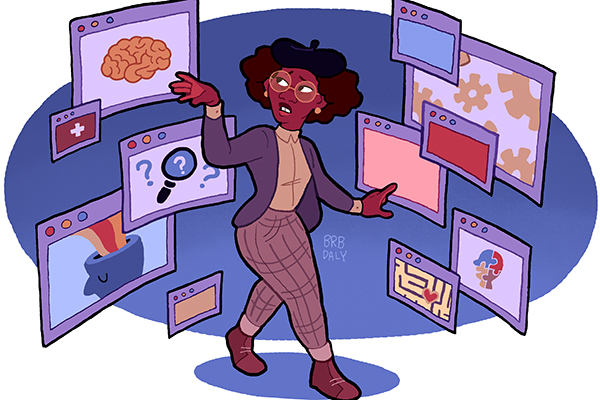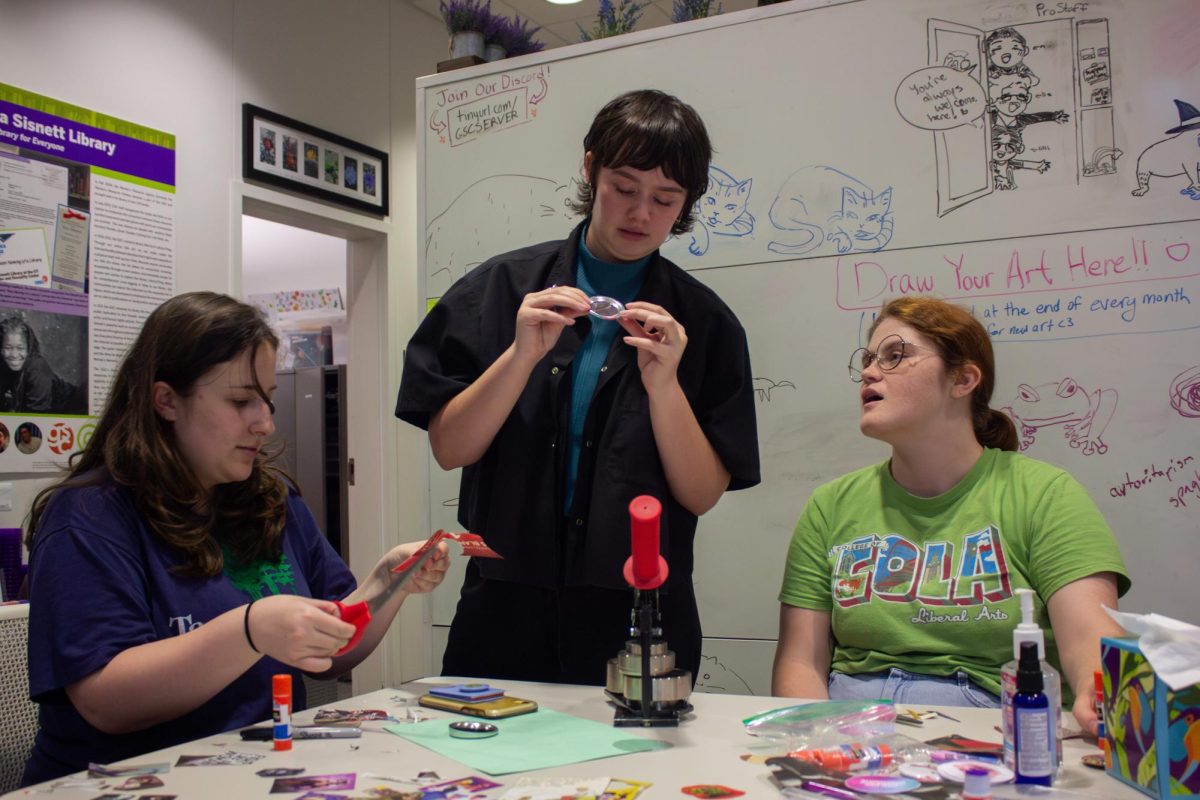Editor's Note: This story first appeared in The Daily Texan's February 5 online edition.
TW: This story contains mentions of mental health. If you or someone you know is experiencing a crisis, call the Counseling and Mental Health Center student crisis line at 512-471-2255.
In June 2020, Madeline Diamont’s life went completely online.
Now, whether it's shopping for clothes, buying groceries or chatting with friends and family, the sociology senior does it all from her four-walled Austin apartment.
“I feel like I’m in quicksand,” Diamont said. “I stay still and I’m trying not to sink, but everyone around me is still moving and trying to get out, so we just keep sinking further. It’s exhausting.”
After being an asymptomatic COVID-19 carrier and unknowingly spreading it to her family, Diamont decided she would stay inside as much as possible.
Nearly a year after the first cases of COVID-19 were detected in the United States, Diamont and other students say they are still struggling to keep their mental health in check.
Ginny Maril, a licensed psychologist and assistant director of clinical services at the CMHC, said without in-person contact, there has been an increase in students with anxiety, depression, grief and even substance abuse.
“Our bodies are physiologically wired to connect with other people,” Maril said. “A lot of people have lost access to their traditional coping strategies, which often includes time with other people.”
Last year, Diamont said being part of the Liberal Arts Council and the spirit organization Texas Lonestars allowed her to see her friends on a weekly basis. Now she only sees them through a screen.
“I’m a social butterfly, and I miss my friends so much,” Diamont said. “Being with my friends and meeting new people used to be a huge part of my life that I valued highly.”
Ariya Chotiwat, an arts and entertainment technologies junior, said a quick trip to the grocery store, walking on campus and going to work used to be ways for her to get out of the house and spend time with friends.
After being laid off from Dunkin’ in January 2020 with no severance pay, Chotiwat was living off of financial aid. She canceled her subscription to Hello Fresh, a meal kit provider, and tried to spend as little as possible on food.
She spends most of her time inside, only leaving to go to work at Pointe on Rio as a real estate agent. She said the isolation has affected her self-image and confidence.
“I’m struggling with my weight, and it’s hard because I’m eating pretty well, but I’m not moving, so those calories aren’t going anywhere,” Chotiwat said. “But I don’t go to the gym either because of COVID-19.”
Chotiwat said she has also noticed the declining mental health of some of her friends, especially those that live in West Campus apartments that don’t get enough sunlight.
“If you have a room that has no windows, or you don’t have enough sunlight in your unit and it’s dark all the time, you’re definitely going to be (more depressed),” Chotiwat said. “That’s definitely affected some of my friends.”
Maril said counselors aren’t usually going through the same experiences as their patients, but this past year has shown parallels.
“(Counselors) are experiencing a lot of the same things, but maybe with an additional pressure to be more okay,” Maril said. “None of us are exempt.”
Maril said no one should expect to be 100% OK during a pandemic.
“We still expect ourselves to be really good at (coping with virtual life),” Maril said. “Sometimes I think people can get caught in a feeling like they’re not doing enough … so I like to remind people … to have some compassion for yourself.”





















